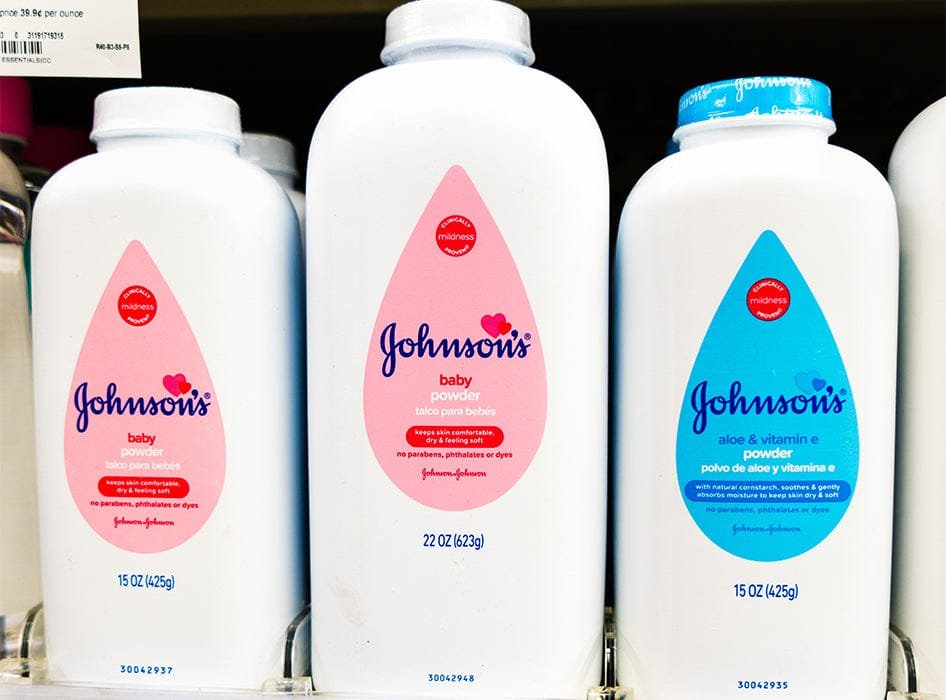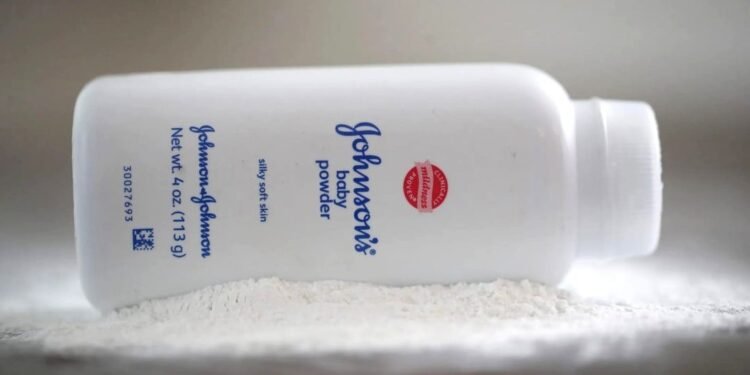More than 3,000 people in Britain have joined a lawsuit accusing the company of knowing that its baby powder contained carcinogenic fibers, including asbestos.
Containers of Johnson & Johnson’s powder on a store shelf. The company switched from talc as the base of its baby powder to cornstarch globally in 2023.
Thousands of individuals in the United Kingdom have filed lawsuits against health care giant Johnson & Johnson, alleging that the company’s talc-based baby powder caused cancer reflecting similar long-standing legal battles faced by the firm in the United States.
More than 3,000 people have joined the lawsuit, which was filed in Britain’s High Court on Tuesday. The initial value of the claim is 1 billion pounds ($1.3 billion), said KP Law, which filed the case on behalf of the individuals. It is the first group claim against the company in Britain.
The claimants contend that between 1965 and 2023, Johnson & Johnson marketed talc-based products despite being aware that they contained carcinogenic fibers, including asbestos, prioritizing profit over safety. The company discontinued sales of its talc-based baby powder in the United States and Canada in 2020, later transitioning to a cornstarch-based formula worldwide in 2023.

The claims in Britain are similar to others made in the United States, where the company has faced accusations from tens of thousands of people. Last week, Johnson & Johnson was ordered by a Los Angeles jury to pay $966 million to the family of a California woman who died from a rare and aggressive cancer. This year, the company’s request to use a bankruptcy court for a $9 billion settlement to resolve around 70,000 claims was rejected.
For decades, Johnson & Johnson’s baby powder was made from the mineral talc. The company has spent years claiming that the product is safe. Internal memos have shown, however, that the company had long been concerned that talc could be contaminated with asbestos, a known carcinogen that often appears underground near talc.
In 2023, Johnson & Johnson spun off its consumer brands to a stand-alone company called Kenvue. “We sympathize deeply with people living with cancer,” Kenvue said in a statement on Thursday.
Kenvue defended the safety of baby powder, saying it is “backed by years of testing” by laboratories, universities and health authorities around the world. The talc used in baby power “was compliant with any required regulatory standards, did not contain asbestos and does not cause cancer.”
The legal action in the United Kingdom involves individuals diagnosed with illnesses such as ovarian cancer and mesothelioma — a cancer associated with asbestos exposure. The claimants assert that they were exposed to the product for a period of at least five years, beginning in infancy or childhood, and in some cases, extending into adulthood.
The claim says that baby powder was marketed in Britain with packaging that said it was “mildness clinically proven.”
“For decades, Johnson & Johnson have orchestrated a campaign of denials and subterfuge,” Tom Longstaff, a partner at KP Law, said in a statement. “We will be relentless in holding them to account on behalf of all those who have suffered due to their actions.”












































































